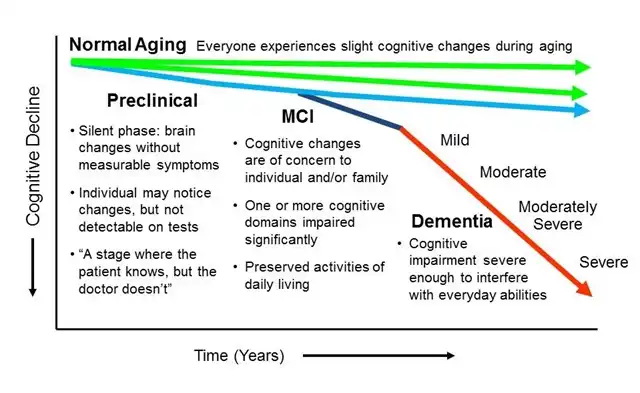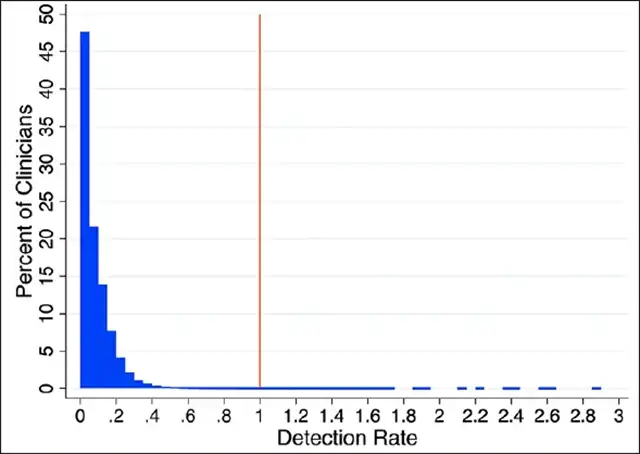Silent Epidemic: 7 Million Americans Unaware of Mild Cognitive Impairment
- Normal Liver Cells Found to Promote Cancer Metastasis to the Liver
- Nearly 80% Complete Remission: Breakthrough in ADC Anti-Tumor Treatment
- Vaccination Against Common Diseases May Prevent Dementia!
- New Alzheimer’s Disease (AD) Diagnosis and Staging Criteria
- Breakthrough in Alzheimer’s Disease: New Nasal Spray Halts Cognitive Decline by Targeting Toxic Protein
- Can the Tap Water at the Paris Olympics be Drunk Directly?
Silent Epidemic: 7 Million Americans Unaware of Mild Cognitive Impairment
- Should China be held legally responsible for the US’s $18 trillion COVID losses?
- CT Radiation Exposure Linked to Blood Cancer in Children and Adolescents
- FDA has mandated a top-level black box warning for all marketed CAR-T therapies
- Can people with high blood pressure eat peanuts?
- What is the difference between dopamine and dobutamine?
- How long can the patient live after heart stent surgery?
Silent Epidemic: 7 Million Americans Unaware of Mild Cognitive Impairment
New research reveals that Mild Cognitive Impairment (MCI) is an early indicator of Alzheimer’s disease, but its diagnosis rate is severely lacking, especially among the elderly and vulnerable populations.
The study emphasizes the necessity of early detection and treatment to control the progression of Alzheimer’s disease.
It also highlights the challenges in identifying various forms of MCI in primary healthcare settings.

Two new studies from the University of Southern California Dornsife College of Letters, Arts and Sciences show that over 90% of the 8 million Americans with MCI are unaware of their condition – a particularly concerning finding as early diagnosis is crucial in delaying the onset of dementia and Alzheimer’s disease.
For many, forgetting keys or struggling with task planning may seem like normal aging processes. However, these errors could be indicative of a more serious symptom: Mild Cognitive Impairment, or MCI, which may be an early sign of Alzheimer’s disease.
Research Findings on MCI Awareness
Unfortunately, most individuals with MCI are unaware, depriving them of the opportunity to benefit from preventive measures or new treatments, such as a recently approved drug for Alzheimer’s treatment that can slow the progression of the disease. These findings come from two new studies simultaneously published by researchers at the University of Southern California Dornsife College of Letters, Arts and Sciences.

In a study published in Alzheimer’s Research & Therapy, researchers analyzed data from over 40 million Medicare beneficiaries aged 65 and older, comparing the diagnosed cases to the expected proportion in this age group. They found that less than 8% of the expected cases were actually diagnosed. In other words, out of the estimated 8 million people with MCI predicted based on demographic characteristics, including age and gender, approximately 7.4 million remained undiagnosed.
Director of the Brain Health Observatory at the USC Dornsife Center for Economic and Social Research, Soeren Mattke, stated, “This study aims to raise awareness of this issue. We want to tell potential patients: ‘Pay attention to early changes in cognitive abilities and inform your doctor. Request an assessment.’ We also want to tell doctors, ‘There are measurable differences between aging and pathological cognitive decline. Early detection of the latter may identify those who can benefit from the recently approved Alzheimer’s treatments.'”
Socioeconomic Factors and MCI Incidence
The incidence of MCI is influenced by socioeconomic and clinical factors. Individuals with cardiovascular diseases, diabetes, hypertension, and other health issues have a higher risk of cognitive decline, including dementia. These health issues are more prevalent in historically disadvantaged groups, including those with lower educational levels, African Americans, and Hispanic Americans.
Researchers found that the detection rates of MCI were lower in these groups. Mattke expressed concern, noting that these populations already bear a higher overall disease burden. Thus, they face a double disadvantage: higher risk but lower detection rates.
Insufficient Diagnoses in Primary Care
A second study published in the Alzheimer’s & Dementia Prevention Journal investigated 200,000 primary care clinicians and found that 99% of them were inadequately diagnosing MCI. Mattke explained, “Doctors capable of diagnosing MCI are really rare, and they can only identify these cases early to unleash the maximum treatment potential.”
Understanding Different Forms of MCI
According to the definition, MCI does not lead to disability, while dementia itself is a disability reflecting more severe cognitive impairment. Soo Borson, Clinical Professor of Family Medicine at the Keck School of Medicine of USC and Co-Director of the BOLD Dementia Early Detection Center, noted that challenges in daily functioning in MCI are often sporadic, but she did not participate in these studies.
MCI has various forms: forgetfulness is the most familiar, Borson said. Another form is executive, mainly affecting efficiency in completing tasks, struggling with tasks that were previously easier, such as balancing a checkbook or paying bills online. There is even a behavioral form – subtle changes in personality may dominate. These different forms of symptoms often coexist.
It’s important to understand that MCI refers to a level of cognitive function, not a specific disease state. The latest developments in treating the most common cause of MCI – Alzheimer’s disease – bring new urgency to improving MCI detection.
Challenges in MCI Detection
In the United States, the diagnosis rate of MCI is generally low for several reasons. Individuals may not be aware of or may not express their concerns; doctors may not notice subtle signs of difficulty; or clinical physicians may notice but may not correctly enter the diagnosis code in the patient’s record.
Another significant reason is that there may not be time allocated during clinical visits to discuss or assess brain health unless it is explicitly included in the visit plan. Detecting cognitive impairments is not difficult, but it won’t happen without a plan.
Mattke pointed out that risk-based MCI detection – focusing attention on the population at the highest risk – will help discover more cases as time and resources can be concentrated on these high-risk individuals. Digital tests that can be conducted before appointments can also help more people understand their cognitive risk and current functioning.
Importance of Early Treatment
Mattke emphasized the critical importance of early treatment because the brain’s recovery capacity is limited – once brain cells are lost, they do not regenerate, and any damage cannot be repaired. “For MCI caused by Alzheimer’s disease, the earlier the treatment, the better the outcome,” he said. “This means that every day is crucial, even if the progression is slow.”
Silent Epidemic: 7 Million Americans Unaware of Mild Cognitive Impairment
(source:internet, reference only)
Disclaimer of medicaltrend.org
Important Note: The information provided is for informational purposes only and should not be considered as medical advice.



